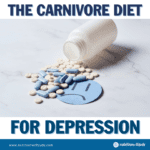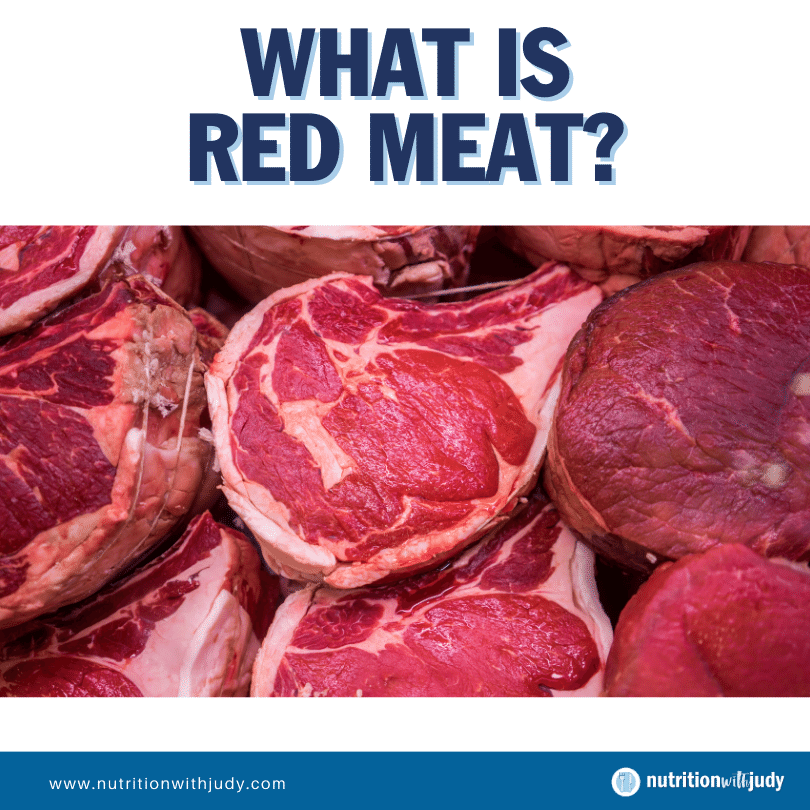

What Is Red Meat?


Red meat has often been unjustly demonized, yet it stands as a nutritional powerhouse and a superfood in its own right. This common misconception stems from various reasons, including dietary myths and misinformation. Contrary to popular belief, incorporating red meat into your diet is crucial for achieving optimal wellness. It offers a range of essential nutrients that play a vital role in maintaining good health. For those embarking on a carnivore diet, understanding the nutritional value and health benefits can help you make better-informed decisions regarding how you eat. So let’s take a closer look at what is red meat, the nutrients it offers, and if you should be eating red meat in your carnivore diet.
What’s Considered Red Meat?
Red meat refers to the meat from mammals, which is typically darker in color due to higher levels of myoglobin. Unlike white meat, which includes poultry and fish, red meat is richer in iron and certain vitamins. Common types of red meat include beef, lamb, venison, pork, goat, and bison. Each variety offers a unique taste and nutrient profile, contributing to a well-rounded carnivore diet.
The Benefits of Red Meat
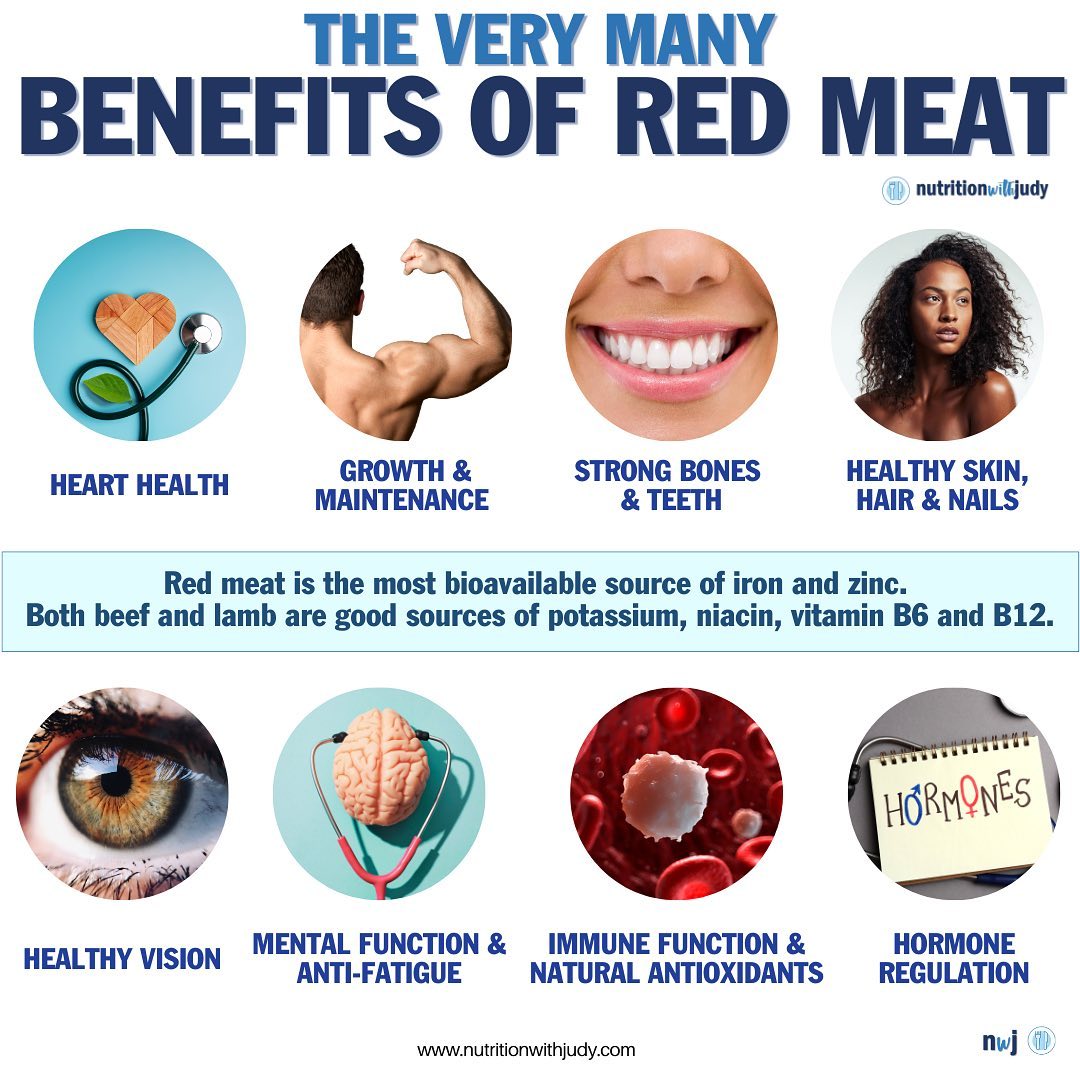

Red meat is a nutritional treasure trove, offering an array of health benefits. It is particularly noteworthy for containing nutrients that are scarcely found in plants or other meats. These include vitamin B12, creatine, vitamin D3, vitamin A, carnitine, heme iron, carnosine, docosahexaenoic acid (DHA), eicosapentaenoic acid (EPA), and taurine. Each of these plays a pivotal role in bodily functions and overall health.
Red meat is often a staple of the carnivore diet and offers a range of health benefits that are essential for optimal personal health. It is especially valuable for those who may not achieve their best health through plant-based diets, playing a crucial role in supporting mental function, physical performance, and mood.
One of the standout features of red meat, particularly beef, is its nutrient density. Beef is preferred by many following a carnivore diet due to its rich nutritional profile, which surpasses that of chicken and pork. Notably, a ribeye steak offers almost all the essential minerals and vitamins necessary for the human body. It also contains a balanced ratio of omega-3, omega-6 fatty acids, and choline. These nutrients are vital for various bodily functions, including brain health and muscle energy regulation.
Beef, like other animal foods, is a rich source of antioxidants, which play a critical role in combating oxidative stress. Oxidative stress can lead to cell damage and is implicated in various diseases. Antioxidants found in beef, such as selenium, vitamin C, vitamin E, and manganese, help protect cells by inhibiting oxidation and preventing or delaying some types of cell damage. This protective action is crucial for maintaining overall health and preventing disease.
Iron content in red meat is another significant aspect, especially considering iron deficiency is the most common nutritional deficiency worldwide. The World Health Organization estimates that nearly a third of the global population may suffer from low red blood cell numbers due to insufficient iron. In the United States, iron deficiency is prevalent among toddlers, with a substantial percentage being anemic due to inadequate iron. Red meat is an excellent source of iron, providing a solution to this widespread nutritional issue.
In summary, the health benefits of red meat are numerous and diverse, making it an integral part of a carnivore diet. Its rich nutritional profile, including essential vitamins, minerals, fatty acids, and antioxidants, supports various aspects of health, from brain function and muscle energy to cell protection and iron supplementation. This makes red meat a valuable food choice for those seeking to optimize their health through diet.
Vitamin B12
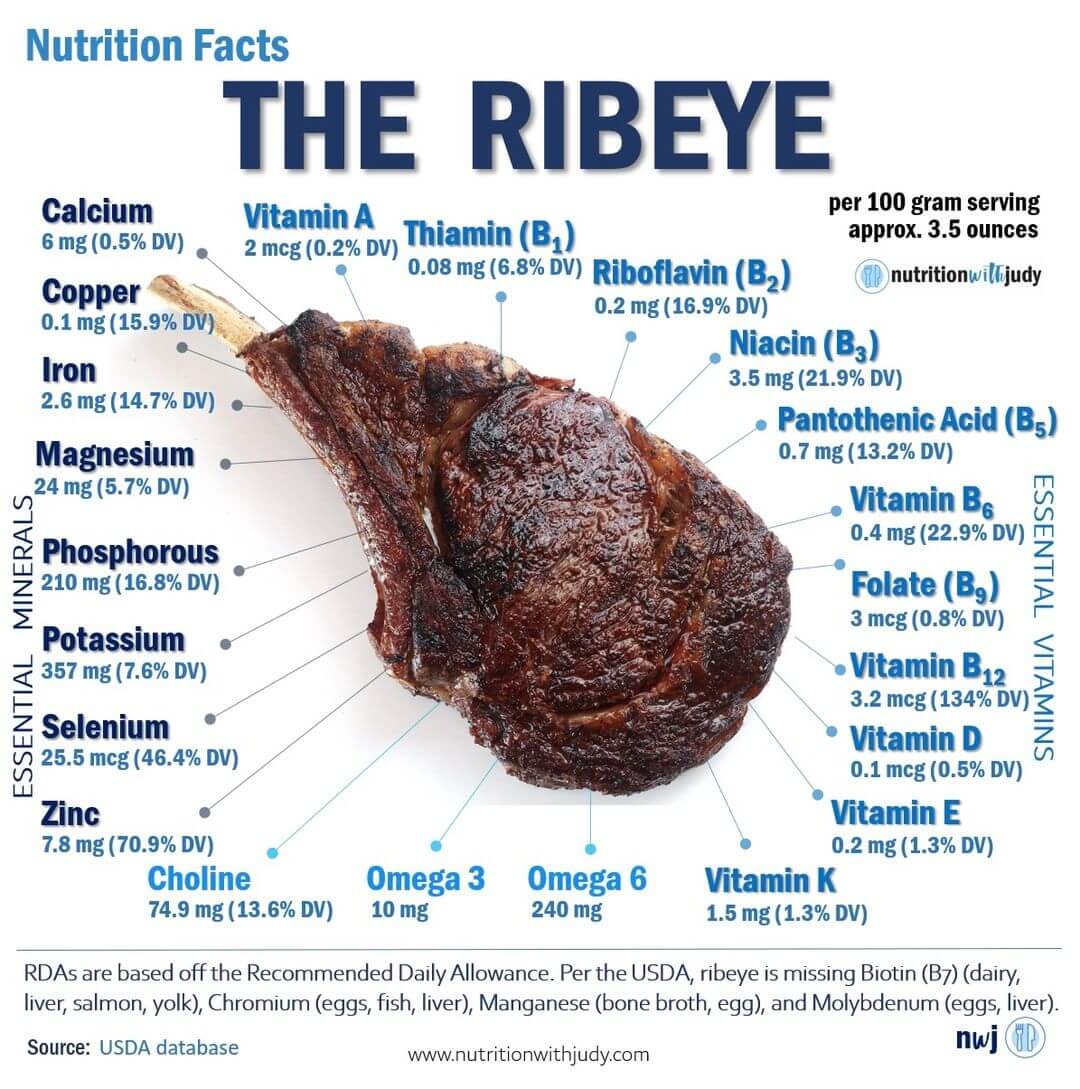

Vitamin B12, found abundantly in red meat, is a crucial nutrient for the human body, with lamb being an excellent source of it, alongside other nutrients like selenium, niacin, phosphorous, and zinc. This vitamin plays a pivotal role in several key bodily functions:
- Neurological Function and Brain Health: Vitamin B12 is essential for the maintenance of the nervous system and healthy brain function. Deficiencies in B12 can lead to neurological issues and cognitive impairment.
- Formation of Red Blood Cells: It aids in the production of red blood cells, preventing anemia, a condition marked by a lack of sufficient healthy red blood cells.
- DNA Synthesis: B12 is involved in the synthesis of DNA, the genetic material in all cells.
The health benefits associated with adequate B12 intake include improved mood, energy levels, and heart health, as it helps to decrease homocysteine levels, a risk factor for heart disease.
The risks of B12 deficiency are significant. They include megaloblastic anemia, fatigue, weakness, constipation, loss of appetite, and weight loss. Neurological changes, such as numbness and tingling in the hands and feet, can also occur. More severe deficiencies can lead to serious neurological problems, including balance issues, depression, confusion, dementia, poor memory, and soreness of the mouth or tongue.
Studies have shown that animal-based foods, including red meat, are vital sources of B12, and their consumption can prevent deficiencies that are more common in individuals following plant-based diets. This highlights the importance of red meat in a balanced diet for maintaining sufficient B12 levels.
Creatine
Creatine, found abundantly in red meat, is a vital nutrient for the body, particularly for energy regulation in the brain and muscles. This compound is naturally present in all beef, making it a key component of a meat-focused diet. Unlike plant-based foods, which do not contain creatine, red meat provides this essential nutrient, underlining the unique nutritional benefits of meat consumption.
The health benefits of creatine include enhanced muscle strength and endurance, improved brain function, and potential therapeutic effects for various health conditions. Creatine’s primary role in the body is to facilitate the recycling of adenosine triphosphate (ATP), the energy currency of the cell, particularly in tissues with high energy demands such as muscles and the brain. This function is crucial for physical performance, cognitive abilities, and overall cellular health.
Being deficient in creatine can lead to decreased muscle mass and strength, and potentially impact brain function, highlighting the importance of including creatine-rich foods like red meat in one’s diet for maintaining optimal health and wellness.
Vitamin D3
Vitamin D3 plays a crucial role in the body, primarily in bone health and immune function. It aids in the absorption of calcium and phosphorus, essential for maintaining bone density and strength. Additionally, vitamin D3 supports the immune system, modulates cell growth, and contributes to neuromuscular and overall health.
Red meat can be a source of vitamin D3, albeit in smaller quantities compared to other sources like sunlight exposure. The health benefits associated with adequate vitamin D3 levels include reduced risks of certain cancers, heart disease, and autoimmune diseases. It also plays a role in mood regulation and preventing depression.
Being deficient in vitamin D3 can lead to various health issues, including osteoporosis, weakened immune function, increased risk of chronic diseases, and mood disturbances like depression. Therefore, maintaining adequate vitamin D3 levels is important for overall health and well-being.
Vitamin A
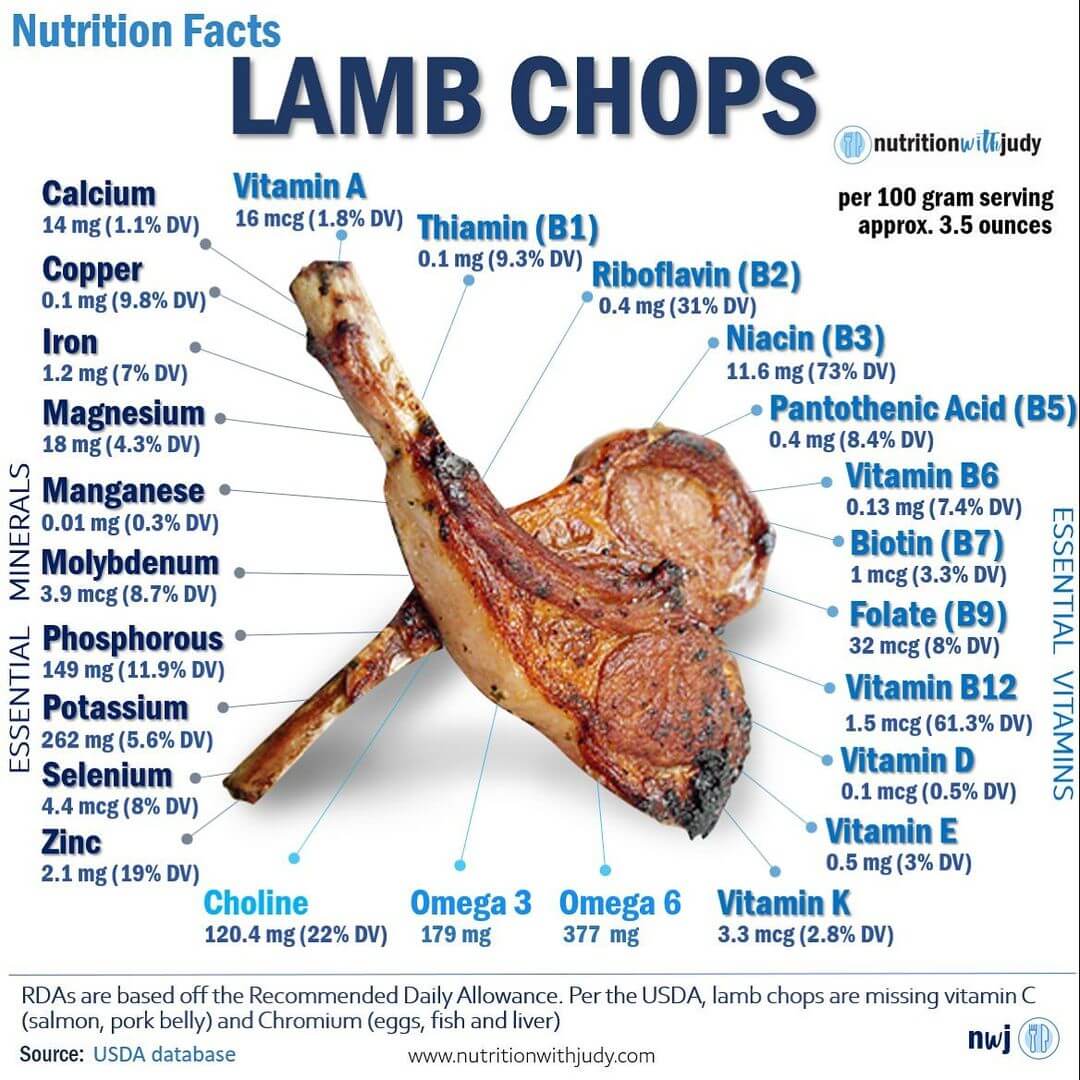

Vitamin A, particularly from animal sources such as liver, is crucial for various bodily functions. It is a fat-soluble vitamin essential for a healthy immune system, eye health, reproductive health, and genetic health. Animal-derived vitamin A, also known as preformed vitamin A, is readily bioavailable, contrasting with provitamin A found in plants, which requires conversion to retinol for the body to use it.
Regular consumption of vitamin A from red meat supports these vital functions. In contrast, a deficiency in vitamin A can lead to compromised immune function, poor eye health, and reproductive issues. Therefore, incorporating vitamin A-rich foods into one’s diet is an important aspect of maintaining overall health and well-being.
However, vitamin A toxicity is also a risk with overconsuming organ meats such as liver and kidney. Read more about these risks here.
Carnitine
Carnitine, an essential nutrient found in red meat, plays a significant role in the body’s metabolic process, especially in energy production. It is vital for the transport and breakdown of fatty acids into the mitochondria, where they are converted into energy. This process is particularly important during periods of fasting or exercise, making carnitine essential for maintaining energy levels.
The health benefits of carnitine include enhanced physical performance, improved metabolism, and potentially aiding in weight management. It is also believed to support heart health by improving myocardial function and reducing the risk of heart disorders.
On the other hand, being deficient in carnitine can impact energy levels and metabolic function. It may lead to muscle weakness, fatigue, and in severe cases, heart complications. Including red meat in the diet, which is a rich source of carnitine, can help prevent these deficiencies and support overall health and wellness.
Heme Iron
Heme iron, primarily found in red meat, plays a vital role in the human body. It’s a form of iron that is easily absorbed and used by the body, making it a critical component for forming hemoglobin in red blood cells. Hemoglobin is responsible for transporting oxygen from the lungs to the rest of the body, supporting cellular function and overall energy levels.
Health benefits associated with adequate heme iron intake include improved energy levels, better cognitive function, and a stronger immune system. It’s especially important for individuals prone to iron deficiency, such as pregnant women and young children.
The risks of iron deficiency are substantial. It can lead to anemia, characterized by fatigue, weakness, and impaired cognitive and immune function. Since heme iron from red meat is highly bioavailable, including it in the diet can be an effective way to prevent these deficiencies, especially in populations at risk. Learn more about iron-deficiency anemia here.
Carnosine
Carnosine, a compound found abundantly in red meat, especially beef, plays a vital role in the body. It’s particularly concentrated in muscle tissue and affects various bodily functions.
The primary role of carnosine in the body is to act as an antioxidant, protecting cells from damage by reactive oxygen species. It also helps to regulate the pH in muscles, thereby reducing acidity during high-intensity exercise. This regulation aids in improving athletic performance, reducing muscle fatigue, and increasing endurance.
Regular consumption of carnosine-rich foods like beef can offer health benefits such as enhanced muscle function, better physical performance, and protection against age-related degenerative diseases. It may also play a role in brain health, potentially improving cognitive function and offering neuroprotective benefits.
The risks of carnosine deficiency are not as well-defined as other nutrients, primarily because carnosine is not considered an essential nutrient, and the body can synthesize it to some extent. However, lower levels may impact muscle and brain function, particularly under stress or during aging. Hence, including carnosine-rich foods like red meat in the diet can be beneficial for maintaining optimal muscle and brain health.
Docosahexaenoic Acid (DHA)
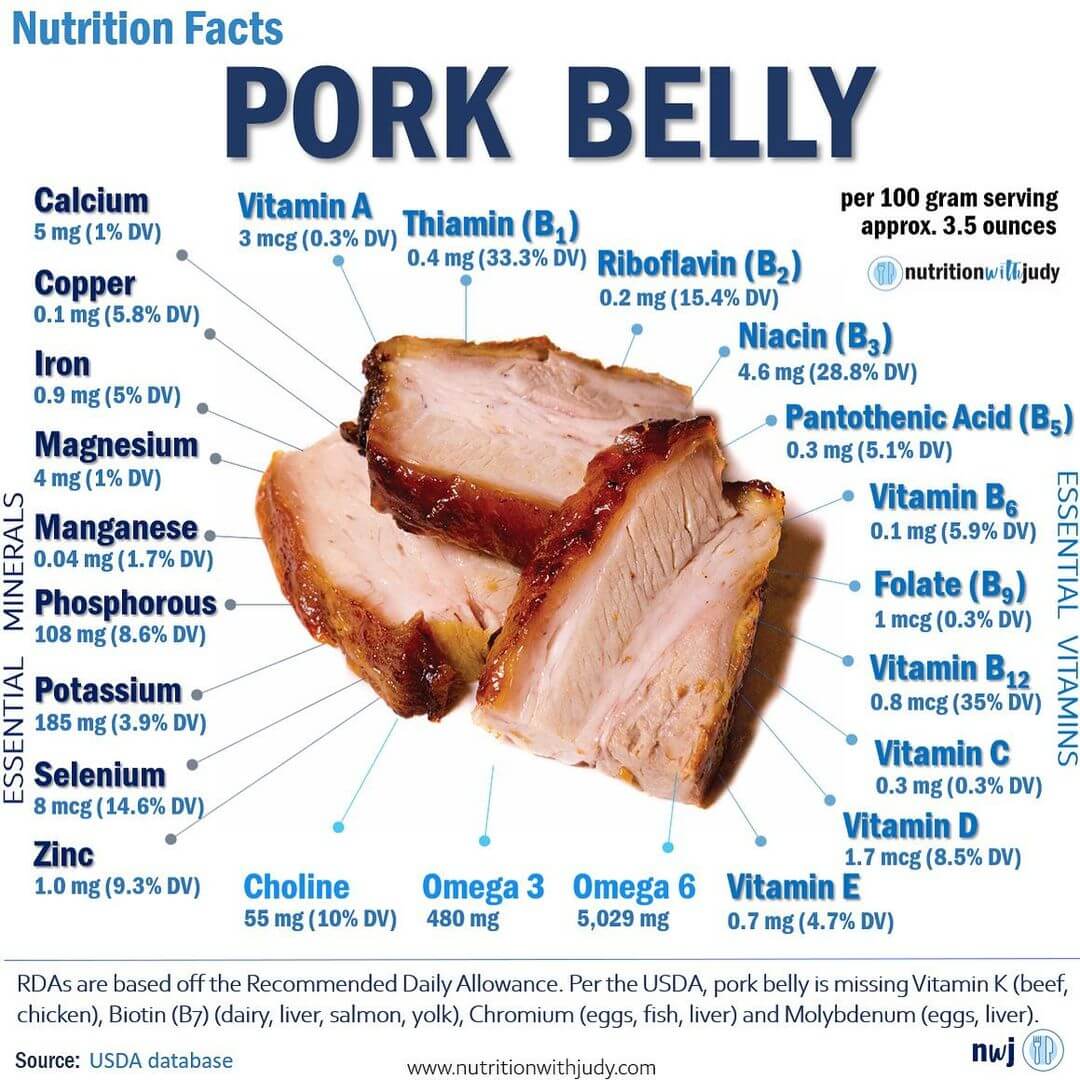

Docosahexaenoic acid(DHA) is a key omega-3 fatty acid, predominantly found in marine sources. While not abundant in red meat, certain animal foods, particularly those from grass-fed sources, can provide DHA. DHA plays a critical role in brain health, particularly in the development and maintenance of neural and visual systems.
The health benefits of DHA are extensive. It’s crucial for maintaining brain health, supporting cognitive function, and is essential for the development of the brain in infants. DHA also contributes to heart health by helping to lower triglycerides, blood pressure, and reducing the risk of heart disease.
Deficiency in DHA can have significant health implications. For the developing fetus and infants, inadequate DHA can affect brain and vision development. In adults, a deficiency may contribute to cognitive decline and increase the risk of heart disease. While red meat is not a primary source of DHA, grass-fed animal products can contribute to its intake, supporting overall health and wellness.
It’s important to note that while red meat provides various nutrients, for optimal DHA levels, a diet inclusive of marine sources is often needed. For those who are unable to tolerate any seafood or fish oil supplements, algae supplements may be an alternative to look into.
Eicosapentaenoic Acid (EPA)
Eicosapentaenoic acid (EPA), an omega-3 fatty acid found in animal foods, plays a crucial role in the human body, especially in maintaining heart health and reducing inflammation. While red meat is not the most abundant source of EPA compared to fish, grass-fed animal products do contain omega-3 fatty acids, including EPA and DHA, albeit in varying amounts.
The health benefits associated with EPA are significant. EPA helps reduce the risk of heart disease by lowering triglyceride levels in the blood, reducing blood pressure, and decreasing the risk of blood clots. It also plays a role in reducing inflammation throughout the body, which can benefit conditions like arthritis and may improve mental health outcomes.
A deficiency in EPA can lead to an increased risk of heart problems and may exacerbate inflammatory conditions. For individuals who do not consume fish, obtaining EPA from red meat, especially from grass-fed sources, can contribute to meeting their omega-3 fatty acid needs and maintaining overall health.
It is worth noting that while red meat provides a range of nutrients, it is not the primary source of EPA. For those looking to increase their EPA intake, a diet inclusive of a variety of omega-3-rich foods or supplements might be necessary.
Taurine
Taurine, a naturally occurring amino acid, is found in high concentrations in red meat. It plays several crucial roles in the body, including supporting neurological development and regulating water and mineral balance in the blood. Taurine also has anti-inflammatory and antioxidant properties, which help protect cells from damage.
The health benefits associated with taurine include improved heart health, as it helps to lower blood pressure and prevent heart disease. It also supports healthy metabolic processes and is beneficial for eye health. Additionally, taurine has been shown to improve exercise performance by reducing fatigue and protecting muscles from cell damage.
While the human body can synthesize taurine, certain individuals, such as those with specific metabolic disorders, might be at risk of deficiency. A taurine deficiency can lead to various health issues, including developmental problems, weakened heart function, and impaired vision. Therefore, including taurine-rich foods like red meat in the diet can support these various bodily functions and prevent deficiencies.
Why You Should Include Red Meat In Your Carnivore Diet
Red meat is a cornerstone of the carnivore diet due to its dense nutritional profile. It’s an excellent source of high-quality protein, essential for muscle building and repair. Rich in vital nutrients like B vitamins, iron (especially heme iron), and zinc, red meat supports energy levels, cognitive function, and immune health. It also provides crucial fat-soluble vitamins and minerals that are often lacking in other food groups. Including red meat in a carnivore diet ensures a balanced intake of these nutrients, contributing to overall health and wellness, and can especially support those seeking muscle growth, improved energy, and better metabolic health.
Closing Thoughts On Red Meat and the Carnivore Diet
In conclusion, red meat is not only a versatile and delicious part of our diet but also a crucial one for maintaining health and wellness. Its role in the carnivore diet is indispensable, providing essential nutrients that support various bodily functions. Incorporating red meat into your diet ensures a balance of nutrients necessary for optimal health.
In some rare cases such as Alpha-Gal Syndrome, red meat will need to be avoided. A carnivore diet can still be achieved through other meats and animal products that aren’t sourced from red meat.
Work With Our Trusted Carnivore Diet Functional Nutritional Therapy Practitioners
The Nutrition with Judy practice is honored to be a trusted carnivore diet practitioner support serving clients from around the globe. We’re passionate about helping our clients achieve root-cause healing in order to lead the best quality of life possible that’s nearly symptom-free. Our team is dedicated to educating our community about the incredible benefits of the carnivore diet. We welcome you to explore our free resources and are always available to support you through personalized protocols. Our Symptom Burden Assessment (SBA) is the perfect starting point for discovering your root cause and is required to work with our team— you can learn more in-depth about this powerful tool here.
Start your root-cause healing journey today and contact us any time with any questions or concerns.
DISCLAIMER: This content is for educational purposes only. While we are board-certified in holistic nutrition and are nutritional therapy practitioners, we are not providing medical advice. Whenever you start a new diet or protocol, always consult with your trusted practitioner first.




